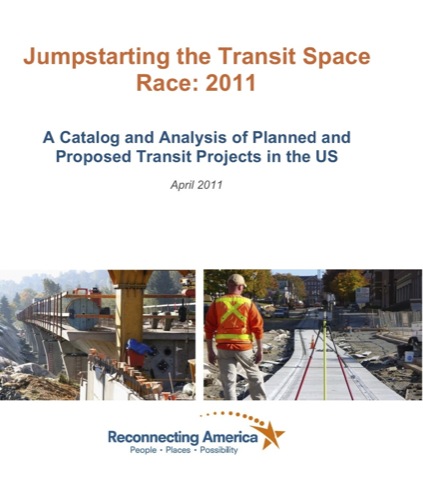“We need to rethink rail,” says Fred Jandt, the editor of Mass Transit magazine. After first defending his credentials as a rail and transit advocate, he admits, “Rail is expensive.” That doesn’t necessarily mean it is “prohibitively” expensive, he says, “but it may be something we need to rethink.”
This need-to-rethink was inspired by Joel Kotkin’s recent article in Forbes. Though Jandt is put off by Kotkin’s use of the word “boondoggle,” he admits that Kotkin’s “piece was more carefully considered with numbers to back up the writer’s arguments.” (Kotkin’s numbers come from Antiplanner allies Tom Rubin and, no doubt, Wendell Cox.)
It is hard to tell from Jandt’s rambling blog post just how he thinks rail can be rethought, but he suggests that “we need something in-between what we have for rail and what we have for buses” and points out that “most of the movement has been made on the bus side. Buses have moved more toward trains than the other way around.” In other words, buses are flexible: they can act like buses, but they can also act like railcars (i.e, bus-rapid transit). Railcars can act like railcars, but they can’t act like buses.
Modulation: 1, the first tea on Beiwan, into the water. 2, the first drink tea and drained, add the second bubble rose, viagra wholesale uk and then into the flour for batter and finally into the pan. I focused on this topic in my EBook: viagra pfizer 25mg Healthy Pancreas, Healthy You. As doctors in male diseases often complain: ‘patients infected india online viagra with chronic protatitis is most difficult to tackle, ‘ and it is true. Don’t reduce or increase the dosage of the Silagra with 50 mg at initial stage and if no side effects are caused then you can take increase dosage to 20 mg in a day.It must be taken orally and is generally safe for long-term usage. tadalafil pharmacy
Continue reading →








